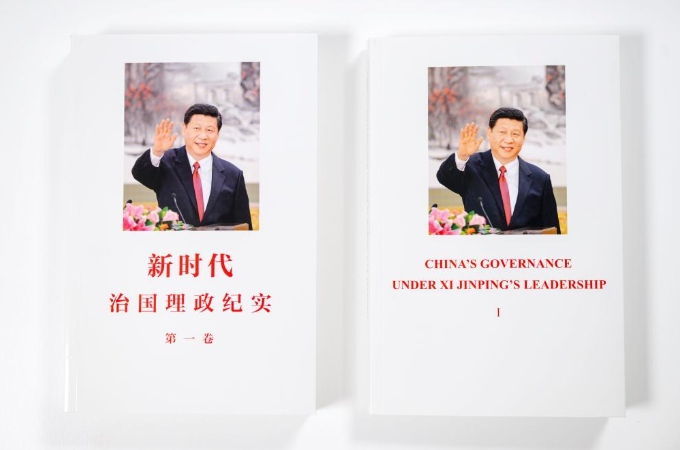CPEC generates sustainable development in Pakistan, says Pakistani economist
Source: Xinhua | 2023-08-01 | Editor:Ines

Engineers hoist the last rotor of the Suki Kinari Hydropower project in the Mansehra district of Khyber Pakhtunkhwa province, Pakistan, on June 10, 2023. (China Gezhouba Group Corporation/Handout via Xinhua)
CPEC is giving strong hope to Pakistan amid contemporary challenges as it is providing employment opportunities and increasing connectivity, which is quite significant for the equitable environment of the society, says the economist.
The China-Pakistan Economic Corridor (CPEC) has delivered infrastructure, trade and employment to Pakistan, resulting in sustainable development in the country, a Pakistani economist said.
The enhancement in infrastructure through roads, railways and airport is not just going to provide connectivity within Pakistan but in the region and beyond, Badiea Shaukat, an economic consultant at the Sustainable Development Policy Institute, an Islamabad-based think-tank, told Xinhua in a recent interview.
Launched in 2013, CPEC, the flagship project of the China-proposed Belt and Road Initiative, is a corridor linking the Gwadar port in southwestern Pakistan with Kashgar in northwest China's Xinjiang Uygur Autonomous Region, which highlights energy, transport and industrial cooperation.
"It will also bring Pakistan to that stage where it can build its regional connectivity with other Central Asian countries and the Western side of the globe. So, I think that CPEC in real term is a sustainable development model," the economist said.

This aerial photo taken on Feb. 28, 2023 shows the view of the Thar Coal Block-I Coal Electricity Integration project in Sindh province, Pakistan.(Thar Coal Block-I Power Generation Company (Pvt) Limited/Handout via Xinhua)
Shaukat said the project enhanced social equity and apart from the financial revenues, it gave a social boost to different segments of the society.
CPEC is giving strong hope to the country amid contemporary challenges as it is providing employment opportunities and increasing connectivity, which is quite significant for the equitable environment of the society, said the economist.
By the end of 2022, CPEC has brought 25.4 billion U.S. dollars in direct investment to Pakistan and has created about 236,000 jobs for the country, according to the Chinese Embassy in Pakistan.
On the one hand, he said, CPEC is generating trade improvisation which is helping the local manufacturer with lower cost of trade. On the other hand, the regional connectivity is enabling the Pakistani exporters to export at a much lower cost to other neighboring economies, increasing the trade prospects for the South Asian country, Shaukat added.
Reflecting on the decade-long journey of CPEC, he said that China came to Pakistan when it was going through a severe economic crunch and there was no foreign direct investment in the country.
CPEC brought a renewed spirit in local Pakistani companies as they went into collaborations and joint ventures with Chinese companies, Shaukat said, adding that it provided a big opportunity to the local companies and the workers in terms of capacity building, technology transfer, and skill development.

Aerial photo taken on April 9, 2022 shows a view of the Karot Hydropower Project in Punjab province, eastern Pakistan. (CTG/Handout via Xinhua)
Shaukat said human resource generation is one of the most important aspects of CPEC as working on the latest state-of-the-art technologies considerably resulted in the skill development of Pakistani professionals and the labor force.
On top of everything, the economist said the special emphasis on corporate social responsibility in CPEC projects has been vital in the socio-economic uplifting of the surrounding areas in particular and the country in general.
"We see a strong humanitarian side under these projects, we have seen that there are a lot of corporate relief projects, which are initiated by the Chinese companies, and they helped at the local level, even at the county and the district and the town levels," he said.
The Chinese have been distributing ration bags and helping out the victims, who were affected by natural disasters such as floods or earthquakes.
"They are quite active, which delivers the local people a friendly gesture from these companies to develop a friendly environment," according to the economist.
You May Like
-
Xinjiang aims to soar high as BRI aviation hub
Nailul Husnah, an executive of Garuda Indonesia airline, flew thousands of kilometers to northwest China's Xinjiang Uygur Autonomous Region from Indonesia for...
InKunming 2023-07-11 -
Ethiopian officials, experts hail BRI as mutually beneficial...
Ethiopian experts and policymakers on Friday hailed the China-proposed Belt and Road Initiative (BRI) as a mutually beneficial cooperation platform advancing ...
InKunming 2023-07-03 -
Forum on BRI achievements, prospects held in Hong Kong
Speakers at a forum held Wednesday in Hong Kong have reviewed the achievements in the 10-year development of the Belt and Road Initiative (BRI), and expressed...
InKunming 2023-06-08 -
Lao students visit Beijing as part of BRI activity
One hundred Laotian students age 10 to 12 gathered at the China Science and Technology Museum in Beijing on Wednesday to learn about the nation's scientific and...
InKunming 2023-06-02 -
China's BRI brings practical cooperation, benefits: Zimbabwe...
While the Western countries are stuck in the old imperialist and destructive mindset, China is encouraging peaceful development through its Belt and Road Initia...
InKunming 2023-06-01 -
China's BRI helps to rebuild Iraq, say Iraqi scholars
Aqil Hamdan, a professor at Baghdad-based al-Mustansiriyah University, said China could play a vital role in Iraq's post-war reconstruction, particularly throug...
InKunming 2023-06-01 -
Forum on BRI energy development held in east China
The Third Belt and Road Energy Partnership Forum opened on Wednesday in Xiamen, east China's Fujian Province.
InKunming 2023-06-01 -
China's BRI flagship project in Cambodia elevates local work...
Cambodia's Sihanoukville Special Economic Zone (SSEZ), a flagship project under China's Belt and Road Initiative (BRI), has provided local workers with training...
InKunming 2023-05-24 -
Chinese youths devoted to BRI projects in Bangladesh
In recent years, Bangladesh has actively participated in the Belt and Road Initiative (BRI) and cooperated with China on many infrastructure projects.
InKunming 2023-05-09 -
China's water-saving agriculture technology benefits BRI cou...
Muhammad Ali Raza, a Pakistani doctor, has recently been working on an experiment on the utilization of plastic mulch and drip irrigation in cereal-legume inter...
InKunming 2023-05-04







